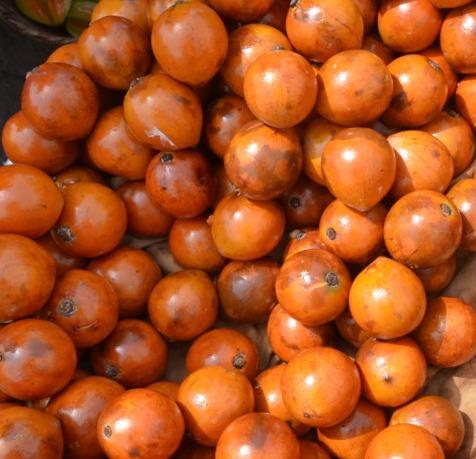Wine is a popular alcoholic beverage made from fermented grape juice. Red and white wine are also popular cooking ingredients. They are included in many recipes to enhance flavour and colour.
Additionally, wine is often used in cooking to provide moisture, tenderize meat or to deglaze a pan.
If you don’t have wine on hand, or if you choose not to consume alcohol, there are many non-alcoholic substitutes you can use in cooking that will make your food just as delicious.
This article discusses 11 non-alcoholic substitutes for wine in cooking.
- Red and White Wine Vinegar
Vinegar is a fermented, acidic liquid that is commonly used in cooking.
It consists of acetic acid, water and other ingredients such as apple cider, coconut water or wine. Red and white wine vinegar are great substitutes for wine in cooking. They have flavours similar to wine, and the vinegar will not substantially affect the taste of the dish. Generally, wine vinegars are useful for liquid-based recipes, such as salad dressings and marinades.

Red wine vinegar is best used with beef, pork and vegetables, while white wine vinegar works well in less hearty dishes, such as those with chicken and fish.
It is important to note that wine vinegar contains trace amounts of alcohol, although it mostly disappears during the fermentation process. The alcohol content is also reduced with cooking
- Pomegranate Juice
Pomegranate juice is a beverage with a rich, fruity flavour.
Additionally, pomegranate juice is fairly acidic and boosts the flavour of just about any food. Its flavour, aroma and acidity are comparable to red wine, so it may be used to replace red wine equally in cooking.
Since pomegranate juice is less acidic than red wine, you can mix it with a tablespoon of vinegar, which will result in a stronger flavour.
Pomegranate juice tastes great with several different types of dishes. It works well when added to salad dressings and sauces or when used in a glaze for vegetables.
Not only does pomegranate juice add flavour to recipes, but it may also provide some health benefits. It is rich in antioxidants and has been studied for its potential to lower blood pressure, which is a common risk factor for heart disease.
- Cranberry Juice
Cranberry juice is a tart beverage that makes an excellent red wine substitute due to its similar colour, rich flavour and acidity. It deepens the flavour of just about any recipe. Similar to pomegranate juice, you can replace red wine with cranberry juice in recipes at a 1:1 ratio.
Since cranberry juice is sweet on its own, it is suggested to cook with a version that doesn’t contain added sugar. Otherwise, the recipe may taste sweeter than what you intended.
Additionally, you can reduce the sweetness of cranberry juice by mixing it with a tablespoon or two of vinegar before adding it to recipes.
Cranberry juice may also have some health benefits. It has been studied for its ability to reduce the occurrence of urinary tract infections and is also rich in antioxidants that combat disease-causing inflammation.
- Ginger Ale
Ginger ale is a carbonated soft drink flavoured with ginger. It typically contains a few other ingredients, including lemon, lime and cane sugar.
Due to its similar appearance, ginger ale can be a replacement for white wine in cooking. You can substitute ginger ale for white wine in equal amounts.
The acidity of ginger ale makes it a great meat tenderizer, which means that it breaks down the proteins in meat, making it softer and easier to chew.
Keep in mind the flavour differences between ginger ale and white wine. Although they have similar dry and sweet tastes, ginger ale should only be used in recipes that will work well with a slight ginger flavour.
- Red or White Grape Juice
Grape juice is another beverage with a rich flavour profile and makes an excellent non-alcoholic substitute for wine.
Since wine and grape juices have almost identical flavours and colours, you can replace wine with grape juice in recipes at a 1:1 ratio. Naturally, white grape juice should be used in place of white wine and red grape juice in place of red wine.
For less sweetness, you can add a bit of vinegar to grape juice, which will enhance the acidity and increase the tartness. Grape juice combined with vinegar also makes a great marinade for meat or vegetables.
Not only is grape juice useful in cooking, but it’s also rich in polyphenol antioxidants.
These have been studied for their potential to boost immune health and may lower some heart disease risk factors, such as high blood pressure.
- Chicken, Beef or Vegetable Stock
Chicken, beef and vegetable stocks or broths are liquids that are used as a base for many types of dishes, including soups and sauces.
Stock is made by simmering animal bones, meat, seafood or vegetables in water. Vegetable scraps, spices and herbs are often added to increase the flavour of stock, and it is generally used to simmer and tenderize meat.
Due to its similar function in cooking, stock is an excellent non-alcoholic substitute for wine. Since beef broth has a deeper colour and flavour, it works best as a replacement for red wine. On the other hand, chicken and vegetable broths are better replacements for white wine. Depending on your desired flavour and use in a recipe, you can replace wine with stock at an equal ratio. However, it is important to note that stock is savoury, much less acidic and has a mild flavour compared to wine.
- Apple Juice
Apple juice is a sweet beverage that makes an excellent addition to a variety of recipes. The sweetness and light colour of apple juice make it a great non-alcoholic substitute for white wine in cooking. White wine can be replaced with apple juice in recipes at a 1:1 ratio.
It is worth mentioning that apple juice works best as a wine replacement when a recipe calls for only a small amount of wine. Otherwise, you may not achieve the flavour that you were aiming for.
Similar to other types of juice, you can add some vinegar to apple juice to add extra acidity and flavour to the recipe. Apple juice is an excellent addition to sauces used to marinate lighter dishes.
- Lemon Juice
Lemon juice has a sour flavour and is a key ingredient in many different recipes. Adding lemon juice to dishes is an excellent way to enhance flavours, especially if you are aiming for a tangy taste. Lemon juice is acidic, so it may be added to marinades to help tenderize meat.
As a result of their similar functions, you can use lemon juice instead of white wine in cooking. However, lemon juice is quite tart and should not replace white wine equally, to avoid it overpowering the taste of your food. Before adding it to recipes, lemon juice should be diluted with equal parts water.
For example, if a recipe calls for one cup of white wine, you should replace it with half a cup of lemon juice mixed with half a cup of water.
Lemon juice is also rich in nutrients. Just half a cup provides 94% of your daily needs for vitamin C, in addition to some potassium, B vitamins, vitamin E and magnesium.
- Liquid from Canned Mushrooms
When mushrooms are canned, they are mixed with a liquid that absorbs some of their flavour.
One way to use the liquid from canned mushrooms is as a non-alcoholic substitute for red wine in cooking. Since mushrooms have a savoury taste, it is suggested to use the liquid in savoury dishes.
However, if you are aiming for a sweeter flavour in a recipe, it may be helpful to mix the canned mushroom liquid with cranberry, pomegranate or grape juice.
For example, if the recipe calls for two cups of red wine, you can replace it with a combination of one cup of canned mushroom liquid with one cup of cranberry juice.
Additionally, note that canned mushrooms and the liquid can be high in sodium. If you want to control the sodium content of your recipes, make sure to choose low-sodium canned mushrooms.
- Tomato Juice
Tomato juice has an acidic and somewhat bitter flavour. It is added to several types of recipes to enhance flavour profiles.
You can use tomato juice as a substitute for red wine in cooking, due to its similar acidity and colour. Depending on the flavour you are aiming for, tomato juice can be used in place of red wine at a 1:1 ratio.
Since tomato juice is bitter on its own, it may be useful to mix it with fruit juice if you want to sweeten up a recipe. It works well in recipes that require marinating.
Tomato juice tastes quite different from wine, so it may be beneficial to taste test when cooking with it to ensure you are achieving your desired flavour.
Not only is tomato juice a great cooking ingredient, it is also healthy. One cup (237 ml) provides over 20 different nutrients, including 74% of your daily needs for vitamin C and 22% for vitamin A (8).
Furthermore, it is rich in the antioxidant lycopene, which has been studied for its potential to reduce the risk of heart disease and certain types of cancer (9, 10).
- Water
If you don’t have any of the previously listed ingredients on hand, you can simply use water to replace wine in cooking.
While water won’t contribute any flavour, colour or acidity to the recipe, it provides liquid, which will prevent the dish from turning out drier than you intended.
If you have regular vinegar or sugar available, you can mix this with water to help enhance the flavour.
As for quantities, 1/4 cup water, 1/4 cup vinegar and 1 tablespoon sugar is a useful mixture to use as a 1:1 substitute. Nevertheless, you may need to alter this depending on what you’re making.
Source: Healthline










